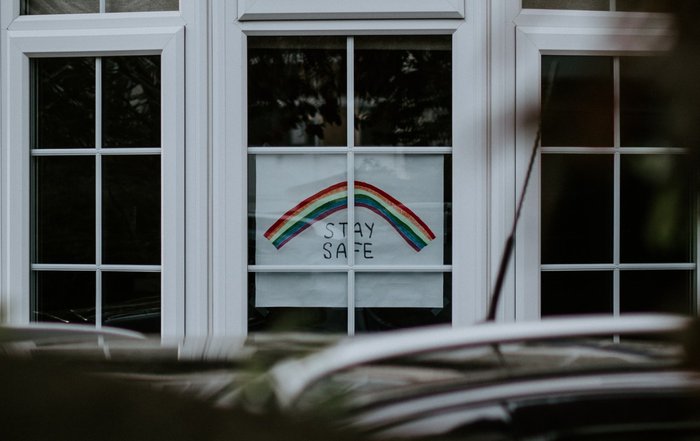How is the coronarvirus affecting the blood cancer community’s mental health?
United Kingdom
In the current climate, it’s inevitable that many people’s mental health will be affected to some extent as we’re cooped up inside and cut off from friends and family. But what impact has the coronavirus pandemic had on people affected by blood cancer specifically?

We know that a diagnosis of blood cancer can have a serious mental health impact and delayed diagnosis can cause particular stress and anxiety.
What has our survey found?
Our survey of more than 3,000 people affected by blood cancer has found that, of those directly affected over 50% of respondents reported that the pandemic has affected their mental health, nearly 10% significantly.
When asked how the situation made them feel:
- Around 70% of respondents told us they felt anxious
- Almost 49% told us they were stressed
- Nearly 40% were experiencing low mood
Our survey found that some people with blood cancer face significant challenges, including the stress and uncertainty of trying to keep safe and socially distanced from friends and family members that have to go to work, or may have the virus.
One respondent explained:
My husband and I are sleeping in separate rooms. He has had a cold, no temperature, slight cough. We have kept our distance. My daughter brought over a few food items 5 days ago and left them on the door step for us.
Another explains:
I'm staying in spare room, using my own plate, cup and cutlery and not having much contact at all with my wife.
Shielding
We also know that around 115,000 people with blood cancer have been asked to shield i.e. staying away from other people for at least 12 weeks. Our survey has shown that this group are even more affected, with over half reporting an impact on their mental health.
When respondents who were shielding were asked about their concerns, nearly nine of out 10 said getting the virus, while nearly a quarter were worried about the impact on their cancer treatment and one in six about access to their medical appointments.
Although many people are stressed and anxious, some of the comments show that, in some cases, the blood cancer community has shown positivity, particularly if they have overcome acute blood cancer and isolation as part of treatment in the past:
Compared to stress of Stage 4 diagnosis 2.5 years ago, this [the coronavirus] is a minor concern.
I've lived with chronic cancer for eleven years. COVID-19 is another step in the road which I deal with, with resilience and fortitude.
Never get stressed or anxious. It is what it is - get on with living.
Friends and family members
Friends and family members have told a different story though. When asked, over 70% of those respondents thought their loved one with blood cancer’s mental health had been affected significantly or to some extent. This is much higher than people with blood cancer themselves.
They also explain the significant impact that caring for and looking their loved one has had on them. Almost four-fifths of respondents felt that looking after a friend or family member with blood cancer during the pandemic had caused them increased stress.
Friends and family members worry about their loved ones getting the coronavirus and the pressure this places on them to keep them safe and well:
Worry that she will get the virus, that me or my husband will and not be able to care for her and her siblings and not get her to medical appointments.
Trying to shield them, extra pressure to source food, extra pressure to reassure them.
I'm utterly terrified that he will be exposed and that's it's my job to minimise that risk. And pretty much it's only my job.
What needs to change?
We know that even in normal times, people with blood cancer often struggle to get access to the mental health support they need. In the current climate, receiving that help is now even more important.
That’s why we’re calling for more support for the shielded group in particular, to ensure their mental and physical health are protected. It’s vital that people are being checked-in on by trained NHS volunteers to ensure that if they are not coping well in isolation, they can access support during the lockdown.
How we can help you
If you’re worried about how you’re coping during the pandemic, visit our information pages, which include practical tips and advice to help you manage your mental health.
If you want to speak to someone, you can also call our helpline for free on 0808 2080 888 to speak to one of our trained blood cancer support team in confidence.
Our phone lines are staffed from 10am – 7pm on Monday to Friday and from 10am – 1pm on Saturday and Sunday but you can call us anytime and leave a message and we'll get back to you within one working day.
